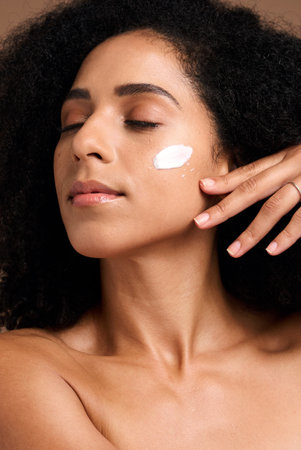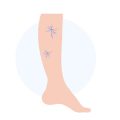Understanding Sensitive Skin in the UK Climate
For those living in the UK, sensitive skin is a common concern, and it’s no surprise when you consider the unique combination of environmental factors that affect British skin types. From damp winters and blustery winds to sudden temperature shifts and unpredictable rainfall, the British climate can be especially harsh on delicate complexions. But what truly sets the UK apart is not just its weather—it’s also the quality of water and urban pollution that can further aggravate skin sensitivity.
The Impact of British Weather
British weather is famously changeable. Frequent exposure to cold, wet conditions during autumn and winter months can strip natural oils from the skin, leading to dryness, redness, and irritation. Conversely, in summer, increased humidity and occasional heatwaves can trigger flare-ups in those prone to eczema or rosacea. The unpredictability means skin never fully adapts, making it essential to adjust body care routines throughout the year.
Water Hardness: A Hidden Culprit
Hard water—prevalent across much of England and Wales—contains higher levels of calcium and magnesium. These minerals interact with soaps and cleansers, often leaving a residue on the skin that disrupts its natural barrier. This can result in tightness, flakiness, and increased sensitivity. Here’s how water hardness varies across the UK:
| Region | Water Hardness Level | Skin Sensitivity Risk |
|---|---|---|
| South East England (London, Kent) | Very Hard | High |
| Northern England (Manchester, Liverpool) | Soft to Moderate | Medium |
| Scotland & Wales | Soft | Lower |
Environmental Stressors: Pollution and Pollen
Urban environments across the UK face increasing levels of air pollution from traffic and industry. Tiny particles known as PM2.5 can penetrate the skin’s surface, triggering inflammation or allergic reactions in sensitive individuals. Additionally, seasonal pollen counts—especially during spring—may exacerbate itching or flare-ups for allergy-prone Britons.
Why Tailored Body Care is Essential
The interplay between climate, water quality, and environmental stressors makes generic skincare less effective for many British residents. Tailored body lotions and butters designed for sensitive skin provide targeted hydration, reinforce the skin barrier, and offer soothing ingredients that combat localised irritants. With these challenges in mind, choosing products specifically formulated for British conditions isn’t just a luxury—it’s a necessity for maintaining comfortable, healthy skin all year round.
Key Ingredients to Look For in Gentle Body Lotions & Butters
When it comes to selecting the best body lotions and butters for sensitive British skin, understanding which ingredients truly deliver both nourishment and comfort is essential. Many popular products on the UK market harness a blend of time-honoured botanicals and modern skincare science, focusing on gentle yet effective elements. Here’s a closer look at some of the most valued ingredients for sensitive skin solutions, particularly those favoured by British dermatologists and skincare enthusiasts.
Oat Extracts: The Traditional Soother
Oats have been used across Britain for centuries as a calming remedy for itchy or reactive skin. Colloidal oatmeal, in particular, is rich in beta-glucans and antioxidants that help restore the skin barrier, reduce redness, and lock in moisture. It’s a staple in many hypoallergenic formulas due to its proven efficacy in soothing eczema-prone and irritated skin.
Shea Butter: Deep Nourishment from Nature
Sourced from the nuts of the African shea tree, this rich emollient is a favourite for dry British winters. Shea butter melts into the skin, forming a protective layer that prevents water loss without clogging pores. Its high concentration of fatty acids and vitamins A and E makes it especially beneficial for restoring softness to delicate skin types.
British-Farmed Botanicals: Homegrown Comfort
The shift towards locally sourced ingredients has seen an increase in the use of native botanicals such as chamomile, calendula, and borage oil. These gentle extracts are prized for their anti-inflammatory properties and suitability for even the most sensitive complexions. Supporting local agriculture also ensures fresher formulations with reduced environmental impact.
Comparison Table: Hero Ingredients for Sensitive Skin
| Ingredient | Main Benefit | Typical Source | Why It Suits British Skin |
|---|---|---|---|
| Oat Extract (Colloidal Oatmeal) | Soothes irritation & restores barrier | British-grown oats | Ideal for combating common sensitivities from UK weather changes |
| Shea Butter | Intense hydration & protection | African shea nuts (often Fairtrade) | Combats dryness from central heating & chilly winds |
| Chamomile Extract | Reduces redness & calms skin | UK-farmed chamomile flowers | Mild enough for daily use, perfect for delicate skin types |
| Borage Oil | Rich in GLA for barrier repair | Locally harvested borage plants | Helps restore resilience against harsh environmental factors |
| Aloe Vera Juice | Cools & hydrates instantly | Imported or greenhouse-grown in Britain | Quickly relieves flare-ups from pollen or pollution exposure |
The Takeaway for Sensitive Skin Seekers
Selecting a body lotion or butter enriched with these key ingredients can make all the difference when navigating Britain’s unpredictable climate and unique environmental challenges. By prioritising formulas featuring oat extracts, shea butter, and homegrown botanicals, you’re not only investing in your skin’s comfort but also supporting sustainable practices within the UK beauty industry.

3. Top Body Lotions for Sensitive British Skin
When it comes to sensitive skin, the right body lotion can make all the difference—especially given the unpredictable British weather and its impact on our skin barrier. Below is a comparative review of some of the most popular, fragrance-free, and dermatologically-tested body lotions easily found across UK high streets and pharmacies. Each option is designed to soothe, protect, and hydrate without irritation.
Creams That Care: A Comparative Table
| Product Name | Main Ingredients | Texture & Absorption | Key Benefits | Suitable For | Price Range (GBP) |
|---|---|---|---|---|---|
| Cetraben Lotion | Glycerin, Light Liquid Paraffin | Lightweight, absorbs quickly | Calms irritation, restores moisture barrier | Eczema-prone, dry sensitive skin | £7-£12/200ml |
| E45 Daily Lotion (Fragrance Free) | Petrolatum, Lanolin | Non-greasy, smooth finish | Soothes dry patches, clinically tested for sensitive types | General sensitive skin/all ages | £5-£10/250ml |
| Aveeno Daily Moisturising Lotion | Colloidal Oatmeal, Glycerin | Creamy but not heavy; quick absorption | Reduces redness, long-lasting hydration | Sensitive & reactive skin, suitable for children | £6-£13/300ml |
| CeraVe Moisturising Lotion (Fragrance Free) | Ceramides, Hyaluronic Acid | Silky texture, fast-absorbing yet nourishing | Restores skin barrier, recommended by UK dermatologists | Sensitive & allergy-prone skin types | £8-£16/236ml |
| La Roche-Posay Lipikar Baume AP+ | Shea Butter, Niacinamide, Aqua Posae Filiformis | Balm-like but absorbs well for a rich cream; non-sticky finish | Tackles itchiness and severe dryness; suitable for atopic eczema sufferers in the UK climate | Extremely sensitive or atopic skin (adults & children) | £14-£22/200ml |
The British Approach: Performance in Local Conditions
Efficacy in Humid and Cold Weather:
Given the UKs frequent rain and chilly winds, lotions like Cetraben and La Roche-Posay Lipikar Baume AP+ stand out for their ability to lock in moisture even after a brisk walk in drizzle or exposure to indoor heating. Aveeno’s colloidal oatmeal formula is especially helpful during pollen season when skin may flare up due to allergies.
User-Friendly Packaging & Accessibility
Most products listed are available both in large supermarkets such as Boots and Superdrug as well as local chemists—ensuring convenience for busy Britons. Pump dispensers (as with CeraVe and E45) add a hygienic touch for family use.
Summary Verdict
If your priority is simplicity and clinical backing, E45 and Cetraben offer affordable efficiency.
If you favour advanced formulations with barrier-repairing ingredients, CeraVe and La Roche-Posay Lipikar Baume AP+ are worth the investment.
Aveeno’s oat-based lotion is a staple for those looking for natural soothing properties without compromise on hydration.
No matter your choice, all these top picks prioritise gentle care tailored to British sensitivities—ensuring your skin stays calm, comfortable, and protected year-round.
4. Best Body Butters to Lock in Moisture
The unique British climate, marked by damp winters and sudden cold snaps, presents a particular challenge for those with sensitive, dry, or reactive skin. Body butters, with their sumptuous, thick textures, offer an intense moisture boost that standard lotions often can’t match. For British skin types prone to irritation—exacerbated by central heating and brisk winds—choosing the right body butter is crucial. Below, we delve into the best options available, with a special focus on natural and organic formulations that cater to delicate skin.
Why Choose Body Butter?
Body butters are rich in emollients like shea, cocoa, or mango butter, which form a protective barrier against environmental aggressors. This makes them particularly beneficial for UK residents who battle dryness from both outdoor elements and indoor heating. They’re also less likely to contain harsh chemicals or synthetic fragrances that can trigger reactions in sensitive skin.
Top Picks: Natural & Organic Favourites
| Product | Main Ingredients | Best For | UK Availability |
|---|---|---|---|
| The Body Shop Almond Milk Body Butter | Almond milk, shea butter, community trade ingredients | Sensitive and allergy-prone skin | Widely available in-store & online across UK |
| L’Occitane Ultra Rich Body Cream | 25% shea butter, honey extract | Very dry patches; luxurious texture seekers | Premium department stores & boutiques UK-wide |
| Burt’s Bees Mama Bee Belly Butter | Cocoa, shea & jojoba butters; fragrance-free | Pregnant women & fragrance-sensitive users | Available at Boots & Amazon UK |
| Neal’s Yard Remedies Organic Body Butter | Cocoa butter, beeswax, essential oils (organic) | Lovers of clean beauty & eco-conscious choices | Neal’s Yard shops & health food retailers UK-wide |
| Evolve Beauty African Orange Aromatic Body Butter | Shea butter, baobab oil (certified organic) | Scented option for reactive but not hyper-sensitive skin types | Evolve Beauty website & select indie shops UK-wide |
Application Tips for Maximum Efficacy
For optimal hydration during chilly British evenings, apply body butter straight after a warm shower when skin is still slightly damp. Focus on rough areas like elbows and knees. If you’re especially sensitive or prone to eczema flare-ups, patch-test new products on a small area first.
Summary: Which One Should You Choose?
If fragrance and additives are your main concern, opt for Burt’s Bees or Neal’s Yard Remedies. For luxurious pampering after a frosty walk along the Cornish coast or through a London park in winter, L’Occitane’s rich cream will not disappoint. Whatever your preference, investing in a high-quality body butter is one of the simplest ways to shield British skin from year-round dryness and discomfort.
5. Tips for Testing and Applying Skincare Safely at Home
When it comes to sensitive skin, especially in the unpredictable British climate, its essential to introduce new body lotions and butters with care. Below youll find practical advice tailored for UK readers on patch testing, developing a gentle daily routine, and recognising common triggers to avoid unwanted reactions.
Patch Testing: Your First Line of Defence
Before slathering any new product all over your body, always conduct a patch test. This step is crucial for minimising the risk of flare-ups or allergic reactions—particularly for those with sensitive or reactive skin types.
| Step | How-To | Why It Matters |
|---|---|---|
| Select a Discreet Area | Apply a small amount of the product behind your ear or on the inside of your forearm. | Sensitive spots here mimic facial/body skin but are easy to conceal if irritation occurs. |
| Wait 24-48 Hours | Leave the product undisturbed and monitor for redness, itching, or swelling. | This window allows delayed reactions to appear, which are common with sensitive skin. |
| Assess Before Full Use | If no reaction develops, gradually introduce the lotion or butter into your routine. | This ensures you won’t trigger an unexpected flare-up across larger areas. |
Building a Gentle Daily Routine
The ever-changing UK weather—think cold winds in winter and surprising pollen counts in spring—means your skincare routine should be flexible but consistent. Here’s how to ensure your sensitive skin stays calm:
- Cleansing: Use a fragrance-free, mild cleanser to avoid stripping natural oils, especially after exposure to hard London water or coastal sea breezes.
- Timing: Apply body lotion or butter within three minutes of bathing to lock in moisture before dryness sets in (a common issue after hot showers during chilly British evenings).
- Layer Wisely: If using medicated creams (e.g., for eczema), apply these first and allow them to absorb fully before following up with your chosen body product.
- Sun Protection: Even on cloudy days, consider a body lotion with SPF if skin will be exposed outdoors; UV rays penetrate through clouds and can aggravate sensitive skin conditions.
Avoiding Common Triggers in the UK Environment
- Watch Fragrances & Colours: Many scented products popular on UK high streets contain potential irritants—always check ingredient lists and opt for hypoallergenic versions where possible.
- Avoid Over-Exfoliating: With pollution in urban centres like Manchester and London, gentle exfoliation is helpful, but too much can compromise the skin barrier. Limit exfoliating products to once weekly if you have sensitive skin.
- Pollen & Allergens: During hay fever season, shower and moisturise as soon as you get home to remove pollen particles that may worsen sensitivities.
- Hard Water Adjustments: Consider finishing with a spritz of thermal water if you live in hard-water areas; this can help soothe post-shower tightness before applying your body lotion or butter.
The Takeaway
Navigating new skincare doesn’t have to be daunting. By patch testing patiently, sticking to a gentle routine suited for British weather, and sidestepping common local triggers, you can confidently enjoy the benefits of nourishing body lotions and butters designed for sensitive UK skin types.
6. Frequently Asked Questions from British Consumers
Answers to Common Sensitive Skin Concerns in the UK
British consumers often face unique challenges due to the UK’s climate and water quality, particularly when choosing body lotions and butters for sensitive skin. Below, we address the most frequently asked questions, helping you make informed decisions for your skincare routine.
How can I manage winter dryness with sensitive skin?
During British winters, cold winds and central heating can severely dehydrate sensitive skin. Opt for rich, fragrance-free butters containing shea or oat extracts—ingredients known for their deep moisturising and soothing properties. Applying your lotion immediately after a shower helps seal in moisture more effectively.
What impact does hard water have on sensitive skin, and how can I counteract it?
Much of the UK has hard water, which can strip natural oils and exacerbate sensitivity. To minimise its effects:
| Problem | Solution |
|---|---|
| Dryness & Tightness | Use lotions with ceramides and glycerin to restore barrier function. |
| Irritation & Redness | Look for formulations with calming agents like chamomile or calendula extract. |
| Soap Residue Build-Up | Rinse thoroughly and opt for soap-free cleansers before applying your lotion. |
Are there ethical, locally produced body lotions suitable for sensitive British skin?
Yes, several UK-based brands offer ethically sourced products tailored to sensitive skin needs. Here’s what to look for:
- Cruelty-Free: Certified by Leaping Bunny or similar organisations.
- Sustainably Sourced Ingredients: Locally grown oats, British beeswax, or wildcrafted botanicals.
- Minimal Packaging: Recyclable or biodegradable options are widely available from ethical brands.
Recommended Local Brands
| Brand | Main Features | Sensitive Skin Benefit |
|---|---|---|
| Balmonds | Natural ingredients, cruelty-free, made in the UK | No added fragrance or preservatives; gentle on eczema-prone skin |
| The Body Shop (UK range) | Ethical sourcing, vegan-friendly options | Aloe and oat formulas designed for sensitive users |
| Lush Fresh Handmade Cosmetics | Handmade, minimal packaging, vegetarian/vegan choices | Mild formulas with natural emollients suitable for reactive skin types |
Can I find effective body lotions for sensitive skin at local chemists?
Certainly! Boots and Superdrug stock reputable brands like Aveeno, E45, and CeraVe—all offering dermatologist-tested ranges specifically formulated for British-sensitive skin types. Always check ingredient lists for potential irritants such as alcohol denat., strong fragrances, or parabens if your skin is highly reactive.
Conclusion: Informed Choices Yield the Best Results
Navigating body care for sensitive skin in Britain requires awareness of climate factors, water hardness, and ethical concerns. By selecting appropriate products—ideally those catering to local conditions—you can effectively protect and nourish your delicate skin year-round.


